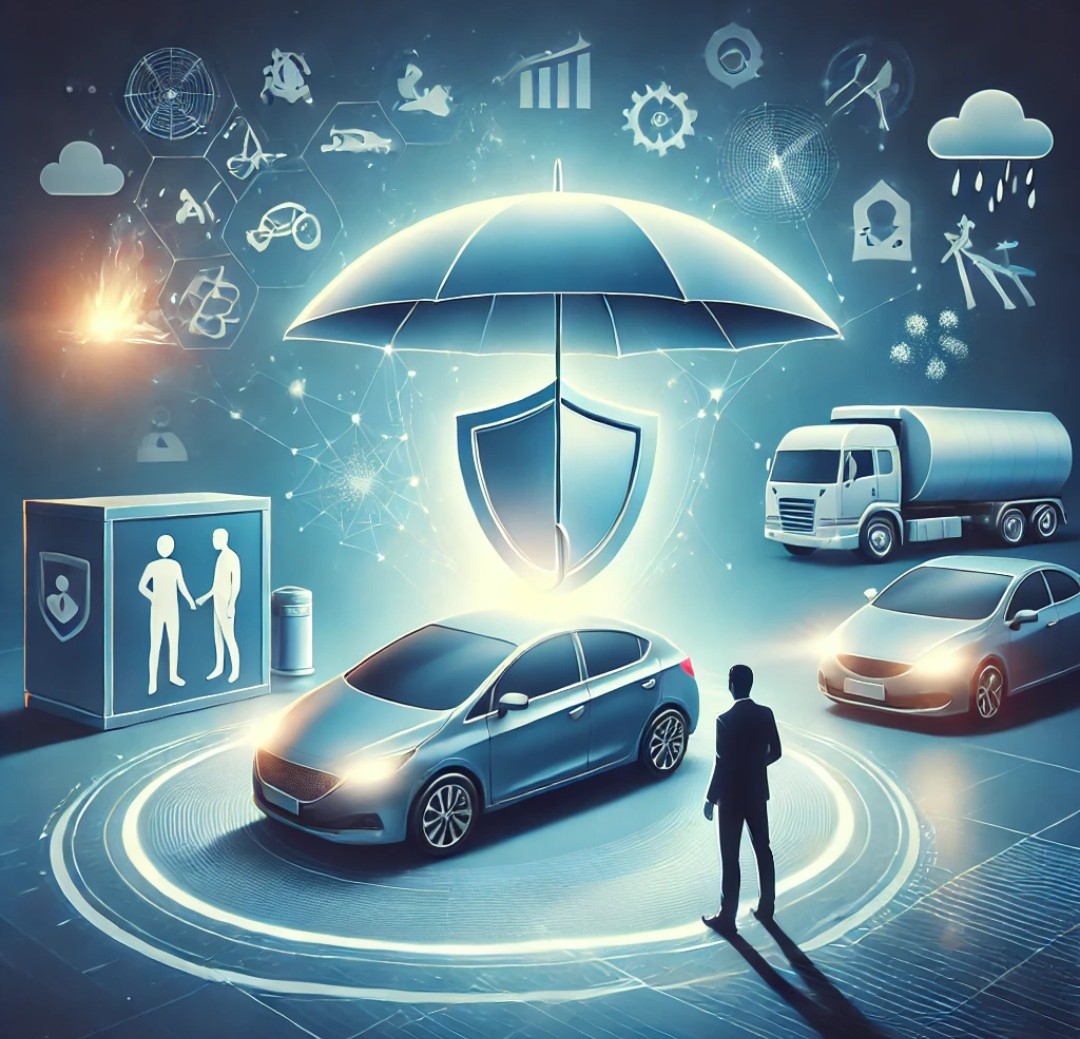The importance of vehicle insurance
In today's fast-paced world, where vehicles are essential for both personal and professional use, the importance of vehicle insurance cannot be overstated. Vehicle insurance is not just a legal obligation in most countries but also a crucial form of financial protection. By covering accidents, theft, and unforeseen damage, it provides vehicle owners with peace of mind and security. Here, we delve into the key reasons why vehicle insurance is essential and how it benefits individuals and society.
1. Financial Protection Against Accidents
Accidents can happen at any time, regardless of how experienced or careful a driver may be. Repairing a vehicle after an accident can be very expensive, often costing thousands of dollars, especially if it involves severe damage. Vehicle insurance provides financial coverage for repairs, sparing the owner from bearing the entire cost out of pocket. Comprehensive coverage even goes further by covering medical expenses for any injuries sustained by the driver or passengers.
a. Reducing the Financial Burden
Without insurance, the costs of repairs or replacements can be overwhelming, especially if the vehicle is severely damaged or totaled. The financial protection provided by insurance ensures that the vehicle owner does not have to face a heavy financial burden, which can otherwise lead to debt or financial stress.
2. Protection Against Theft and Vandalism
Theft and vandalism are common risks that vehicle owners face. Losing a vehicle to theft or suffering damage due to vandalism can be distressing and financially devastating. Most vehicle insurance policies provide coverage for theft, allowing the owner to recover some or all of the vehicle's value. This financial safety net is critical for protecting one's investment in their vehicle, especially for high-value or luxury vehicles that are often targeted by criminals.
a. Coverage for Personal Belongings
In cases where personal belongings inside the vehicle are stolen, some comprehensive policies may also cover these items. While not all policies include this, adding additional protection can provide even greater security for vehicle owners who carry valuable items in their cars.
3. Legal Compliance
In many countries, having vehicle insurance is mandatory. Driving without insurance can lead to heavy fines, legal penalties, and even the suspension of driving privileges. This requirement is designed to protect all road users, ensuring that in the event of an accident, there is financial coverage to support victims.
a. Avoiding Legal Issues
Complying with mandatory insurance laws helps individuals avoid unnecessary legal issues. When drivers have proper insurance, they are better protected in legal situations that may arise from an accident. This legal protection is invaluable and makes handling claims and settlements easier.
4. Liability Coverage for Third-Party Damages
Accidents often involve multiple vehicles, and in many cases, the driver at fault is held liable for damages to other vehicles or property. Liability coverage, a fundamental part of most vehicle insurance policies, covers the cost of repairing or replacing the other party’s vehicle or property. It also includes medical expenses if the other party sustains injuries.
a. Protection Against Lawsuits
Liability insurance can also protect vehicle owners from lawsuits. In serious accidents, victims may file lawsuits to recover their losses. With liability insurance, the insurer handles the claims process and covers court costs, legal fees, and settlements, shielding the driver from potentially devastating financial consequences.
5. Comprehensive Coverage for Natural Disasters and Unpredictable Events
Natural disasters such as floods, hurricanes, earthquakes, and fires can cause significant damage to vehicles. Comprehensive vehicle insurance offers coverage for such unpredictable events, which are often beyond the control of the vehicle owner. This protection ensures that the vehicle owner is not financially impacted by such incidents, as repairs or replacements are covered by the insurance policy.
a. Peace of Mind During Emergencies
Knowing that insurance provides coverage for these events offers peace of mind, especially for people living in regions prone to natural disasters. With comprehensive coverage, vehicle owners can feel more secure in their ability to recover from unforeseen damages caused by natural disasters.
6. Coverage for Medical Expenses
Accidents can result in serious injuries, requiring immediate medical attention and sometimes long-term treatment. Many vehicle insurance policies include medical coverage, which pays for medical bills, surgeries, and other healthcare expenses for the driver and passengers. This is a vital feature, as medical costs can be incredibly high, especially for serious injuries.
a. Protection for Families
When the driver is the primary breadwinner, medical coverage through insurance ensures that their family is not burdened by expensive medical bills. Insurance allows families to focus on recovery rather than worrying about financial strain, providing a sense of security.
7. Protection for Car Loans and Leases
For people who have financed or leased their vehicles, insurance is often a requirement set by lenders or leasing companies. This requirement ensures that the lender’s asset, the vehicle, is protected. In the event of an accident or total loss, the insurance payout will help settle the loan or lease, preventing financial loss for both the vehicle owner and the lender.
a. Gap Insurance for Total Loss
If a vehicle is totaled in an accident, its market value may be lower than the remaining loan balance. In such cases, gap insurance can cover the difference between the loan balance and the vehicle’s actual cash value, which is especially beneficial for those with long-term loans or quickly depreciating vehicles.
8. Optional Add-Ons for Enhanced Protection
Vehicle insurance policies often offer optional add-ons, such as roadside assistance, rental reimbursement, and glass repair coverage. Roadside assistance provides help in emergencies, such as towing, fuel delivery, or jump-starts, which can be incredibly convenient. Rental reimbursement covers the cost of a rental vehicle while the insured vehicle is being

Post a Comment for "The importance of vehicle insurance"